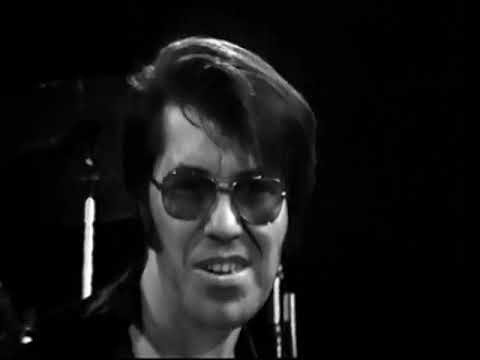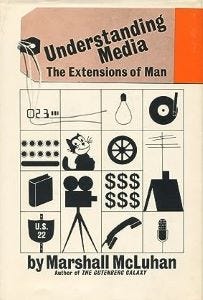R.I.P Labor
Link Wray, Shawnee American, creator of one of rock and roll’s great sounds, one of the coolest cats to ever prowl a stage.
What we consider labor, and certainly Labor with a capital “L”, is largely a creation of the Industrial Era. From the beginning, it was a doomed social and political concept, most especially in regards to democracy. Categorizing labor demanded the separate classification of management. With such a division, labor, no matter how well organized, would always be subservient. Due to its innate secondary status, at best Labor became an insufficient political force in defining the Industrial Era. As simply another segment of an increasingly specialized society, segregated labor became not a political strength, but a weakness. In 1947, at the height of organized Labor's US political power, the wonderful information theorist Norbert Wiener astutely and acutely defined Labor's existential faults. Wiener writes,
“It had been my previous observation and information, both in the United States and in England, that the labor unions and the labor movement are in the hands of a highly limited personnel, thoroughly well trained in the specialized problems of shop stewardship and disputes concerning wages and conditions of work, and totally unprepared to enter into the larger political, technical, sociological, and economic questions which concern the very existence of labor.”
Organized Labor reached their height in the US in the mid-1950s, representing 35% of the workforce, the last seven decades nothing but downhill. Today, Labor represents less than 10% of the “workforce”, many of them government employees. As simply a better paid, less stressed, specialized organic cog in the steel gears of a greater mechanical machine, Labor was always doomed as a political force.
The ideas of work and specialization are ancient, but like so many others, increasingly insufficient for defining the present and future. In Understanding Media, the great technology historian Marshall McLuhan explains,
"'Work,' however, does not exist in a nonliterate world. The primitive hunter or fisherman did no work, any more than does the poet, painter, or thinker of today. Where the whole man is involved there is no work. Work begins with the division of labor and the specialization of functions and tasks in sedentary, agricultural communities.”
Specialization of function and thought became even more starkly distinct with the great scientific revolution beginning in the 16th century, more so in the resulting Industrial Era. Industrialism is now being reshaped by information technologies. The automation of industrial machines is as revolutionary to the factory floor and business office as tractors were to farmers' fields. McLuhan writes,
“Automation is not an extension of the mechanical principles of fragmentation and separation of operations. It is rather the invasion of the mechanical world by the instantaneous character of electricity. That is why those involved in automation insist that it is a way of thinking, as much as it is a way of doing. Instant synchronization of numerous operations has ended the old mechanical pattern of setting up operations in lineal sequence.”
Lineal processes and organization define not simply the factory floor, but our entire society. McLuhan hypothesized, “The pyramidal structure of job-division and description and delegated powers cannot withstand the speed of (electronic media) to by-pass all hierarchical arrangements, and to involve people in depth.” However, McLuhan's idea of a more distributed social reorganization determined by electronic technologies, is at best suspect at this point. It can be argued if these technologies are in anyway to be adopted in a beneficial way and not completely destructive, and this means destructive for our present Tech Lords just as much as what’s left of labor, we need to actively and thoughtfully restructure society to be much less hierarchical and much more horizontally organized, understanding automation is a way of thinking as much as a way of doing.
McLuhan writes,
“In the age of instant information man ends his job of fragmented specializing and assumes the role of information gathering. Today information gathering resumes the inclusive concept of ‘culture,’ exactly as the primitive food-gatherer worked in complete equilibrium with his entire environment. Our quarry now, in this new nomadic and "work-less world, is knowledge and insight into the creative processes of life and society. ....The very same process of automation that causes a withdrawal of the present work force from industry causes learning itself to become the principal kind of production and consumption.”
Learning itself becomes the principle kind of production and consumption, this is key insight as information defines every feature of every component of society. Importantly, flipping McLuhan's thought here, learning becomes integral in deciding what and how things are produced and consumed. “Our education has long ago acquired the fragmentary and piece-meal character of mechanism. It is now under increasing pressure to acquire the depth and interrelation that are indispensable in the all-at-once world of electric organization. Paradoxically, automation makes liberal education mandatory.”
McLuhan describes a more encompassing whole whole world view for every person, not an exclusive specialist view, which is simply not enough. Unfortunately, our politics today, such that they can even be called politics, are specialized and segregated more so than any other time in human history. Our institutions incapable of meeting the challenges posed by new technology.
McLuhan induced, “As the speed of information increases, the tendency is for politics to move away from representation and delegation of constituents toward immediate involvement of the entire community in the central acts of decision.”
It is clear this has not happened, not in the least, for the simple reason our present institutions of government, formed at the end of Agrarian Age, have remained, somewhat amazingly, largely immune to change, first from industrial technologies and now information technologies. McLuhan's description of the “immediate involvement of the entire community in the central acts of decision,” is democracy. Yet our institutions – political, government, and economic – remain either insufficiently democratic or determinedly undemocratic.
In looking how democracy can be evolved in the 21st century, a key aspect must be Wiener's understanding of feedback as fundamental to any autonomous system. McLuhan expands Wiener's idea writing,
“Feedback is the end of the lineality that came into the Western world with the alphabet and the continuous forms of Euclidean space. Feedback or dialogue between the mechanism and its environment brings a further weaving of individual machines into a galaxy of such machines throughout the entire plant (factory). There follows a still further weaving of individual plants and factories into the entire industrial matrix of materials and services of a culture. Naturally, this last stage encounters the entire world of policy, since to deal with the whole industrial complex as an organic system affects employment, security, education, and polities, demanding full understanding in advance of coming structural change.”
McLuhan's idea of “full understanding in advance of coming structural change” isn't quite right. Full understanding for many things can only in part be gained with implementation, thus the incalculable value of feedback. What is necessary is a dynamic, organic politics, inundated with feedback, both allowing development and simultaneously allowing the system to adjust to factors unforeseen or not well known when first implemented.
In short, McLuhan describes the politics of technology, an understanding in the end information technologies require an “organic system” and here reversing McLuhan's logic, not simply in reaction to the affect on, but from their initial implementation in helping to determine employment, security, education, and polities. This is a necessity for the average person to benefit and essential for the beneficial development of any given technology itself.
So, on this Labor Day, it is time to let go of labor as an archaic categorization and revive the idea of democracy, and with it, the concept of the citizen, not as specialist, but just the opposite, a complex, whole figure, dynamically and multiply interconnected through processes and institutions must be radically reformed or that presently don't exist. As far as the decomposing body of Labor and its dead politics, it can be a vital compost used to create a politics that works to get the decisions of technological development out of the exclusive hands of specialized technologists, making those decisions society’s as a whole for the good of both the technologists and the rest of us.



